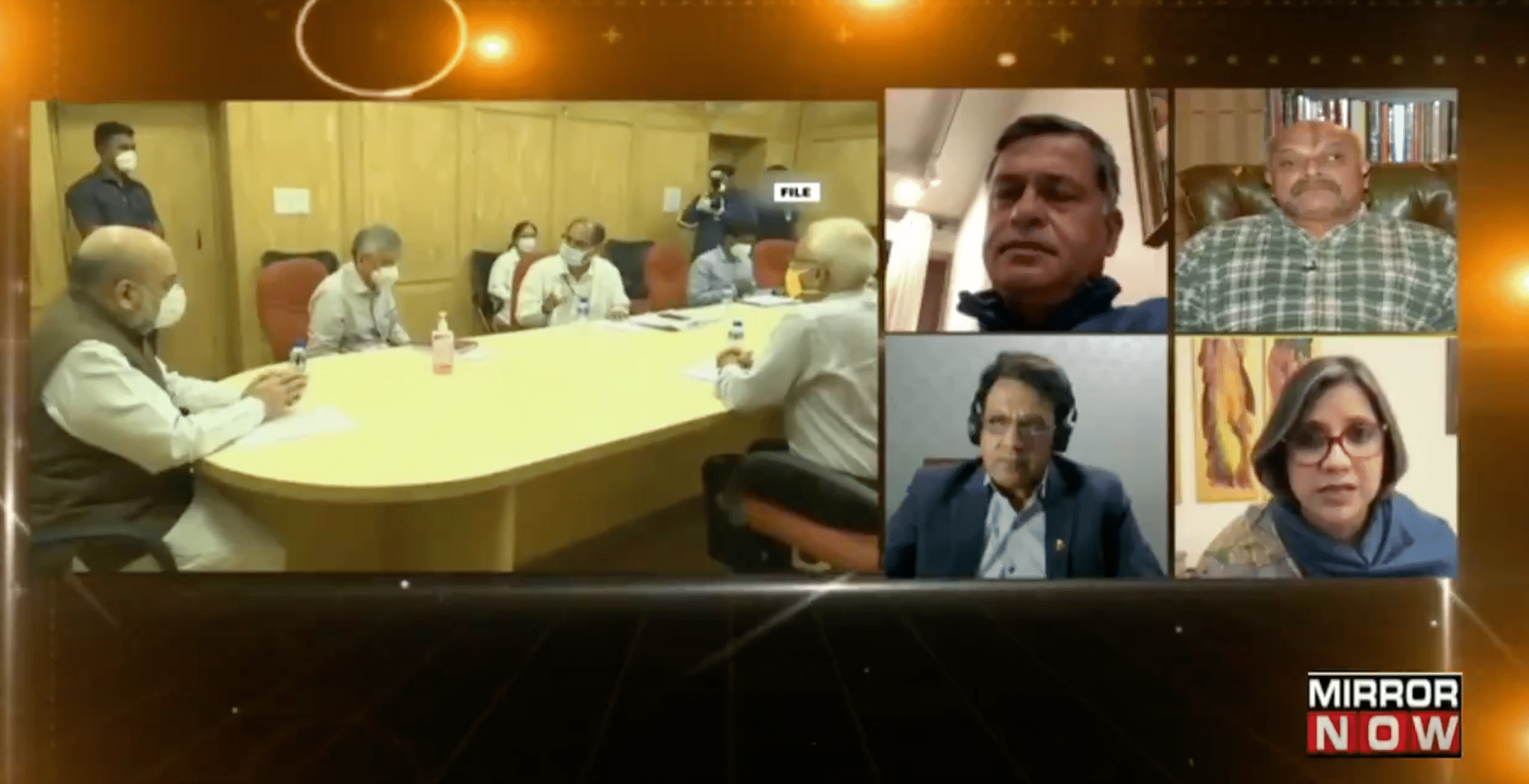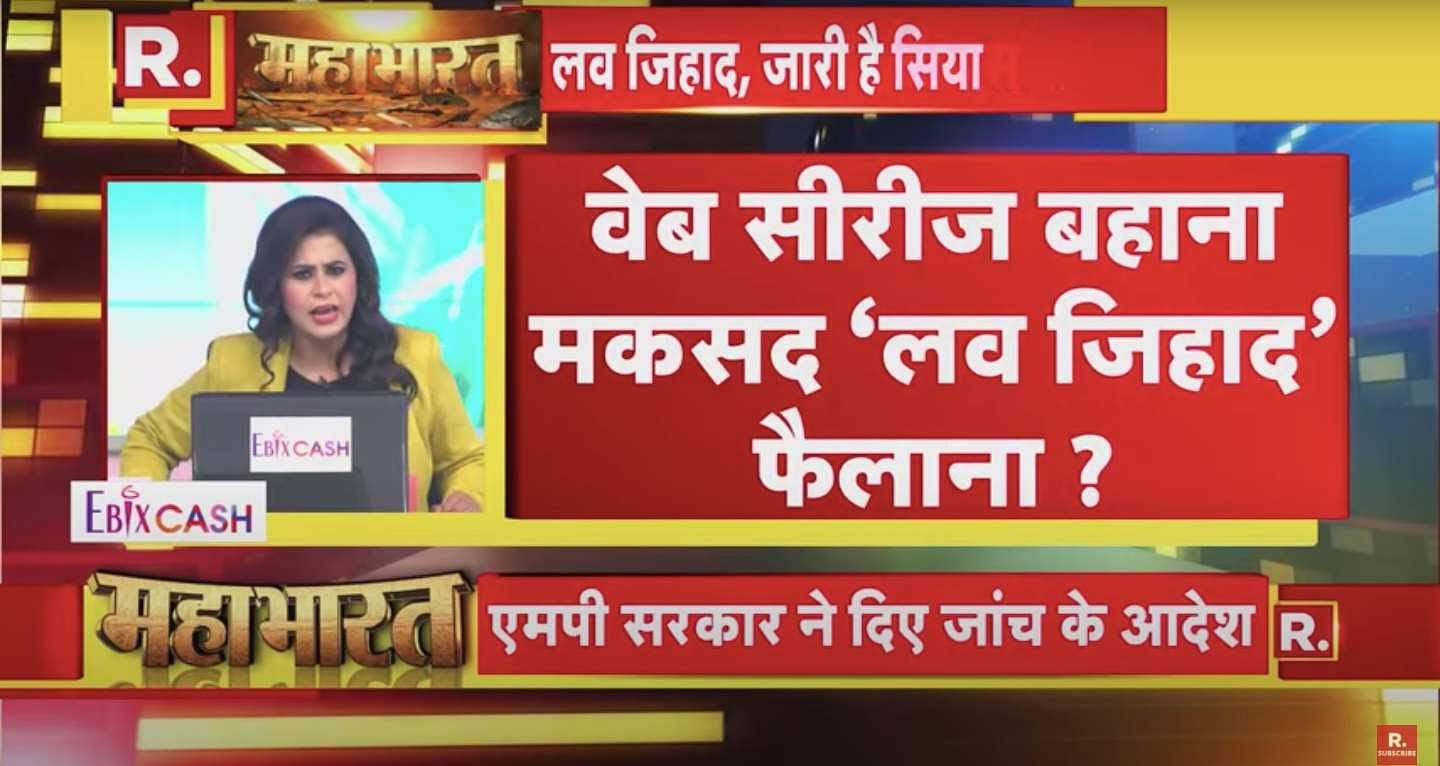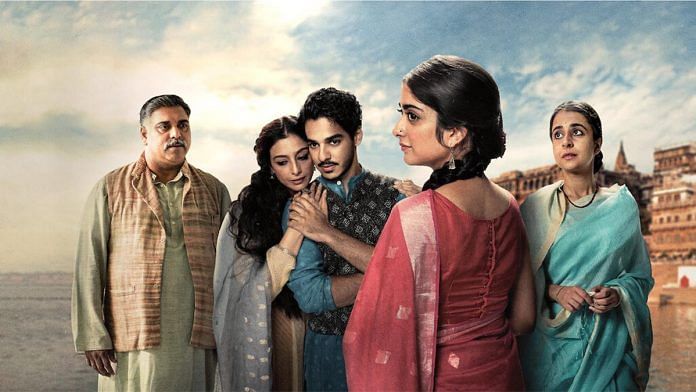New Delhi: Prime time debates Monday went everywhere looking for a good story. Republic Bharat discussed the controversy surrounding kissing scenes in the Netflix series ‘A Suitable Boy’. NDTV 24×7 aired an exclusive interview with Professor Adrian Hill who is overseeing the development of the AstraZeneca-Oxford Covid-19 vaccine, which showed about 70 per cent efficacy in trials. Pakistan also made a comeback on several channels.
First up, however, is Mirror Now that focused on a first-of-its-kind study approved by the Ministry of Home Affairs (MHA) to research the “status of radicalisation in India”.
“Can radicalisation be legally defined?” asked anchor Tanvi Shukla.
“Any issue that exists in a legal form has a sociological or social basis. Radicalisation is not connected to any particular group, ideology or religion. It is an idea of extremist nature, which can lead to violence,” said G.S. Bajpai, professor of criminology and criminal justice at National Law University, Delhi.
“Radicalisation has been identified. We are not looking at something unusual,” he added.
Senior advocate Aryama Sundaram simplified the term, “Four elements are involved in the process of radicalisation. Influencer, influenced, subject matter of influencing and the means of influencing.”
Sidharth Luthra, senior advocate at the Supreme Court, added, “The law on terrorism is not new to the country, we’ve had it in various forms and shapes since 1984-85. What is important to understand is crime prosecution and the other is crime prevention. I assume the study on radicalisation is looking at why people are marginalised which is leading them to be radicalised.”
Maya Mirchandani, professor of media studies at Ashoka University noted that primarily the drivers of radicalisation need to be identified.
“What we need in India is to understand the drivers of radicalisation. The whole idea of trying to understand radicalisation comes under the umbrella of what the UN calls attempts to counter and prevent violent extremism,” she said.

On NewsX, the focus was on Pakistan after the cash-strapped country secured $800 million worth of debt freeze deals from 14 members of the G20. It still awaits ratification by the remaining six countries in the group , including Saudi Arabia and Japan.
The Hindu’s Foreign Editor Pramit Pal Chaudhari noted, “Pakistan is one of the poorest countries in the world. They are even asking the United Kingdom for a debt freeze.”
However, Joyeeta Basu, editor with The Sunday Guardian, said, “The generals of Pakistan and corrupt politicians have the amount of money that can bail them out of some debts.”
Economist Sharad Kohli agreed and even called Pakistan a large-scale Ponzi scheme.But Ambassador Bhaswati Mukherjee, former diplomat, disagreed with the assessment.
“The G20 has a certain criteria for giving out the debts and if Pakistan thinks they can use this debt to shore up their military, that is not going to happen,” he said.
On NDTV 24×7, Oxford University’s Professor Adrian Hill, said that after the fairly successful trial results on its vaccine with Astra Zeneca, “We hope to get this vaccine out there as quickly as possible but now it is going to be in the hands of the regulator.”
“These 3 vaccines (Oxford, Pfizer and Moderna) give us a really good shot at fighting back against the virus. We are not competing against each other but against the virus which has been winning for too long,” he said.
“A key contribution in the fight against this pandemic is if we could stop people from infecting each other,” added Hill.
Sucherita Kukreti on Republic Bharat discussed the ‘A Suitable Boy’ row in Madhya Pradesh. The MP Police filed an FIR against Netflix Monday for airing kissing scenes between a Muslim boy and a Hindu girl against the backdrop of an important Hindu temple.
A complaint against these scenes was filed by BJP leader Gaurav Tiwari, who accused Netflix of hurting religious sentiments and promoting ‘love jihad’.
“The MP government has ordered a probe but the question is why is it that always the emotions of Hindus are played with in the name of creative license? Will there be a ban on this web series?” asked Kukreti.
Her series of questions continued for a long time: “Is this web series an excuse to promote love jihad? When will there be a ban on this series? Why does Congress have a problem with love jihad law?”
However, none of these questions were ever answered on the show.
Actor Nassar Abdulla had another point of view: “The intention wasn’t to hurt anyone. What others think is a different topic,” he said.
“Ask those who have created this web series about their intention,” the actor added.




